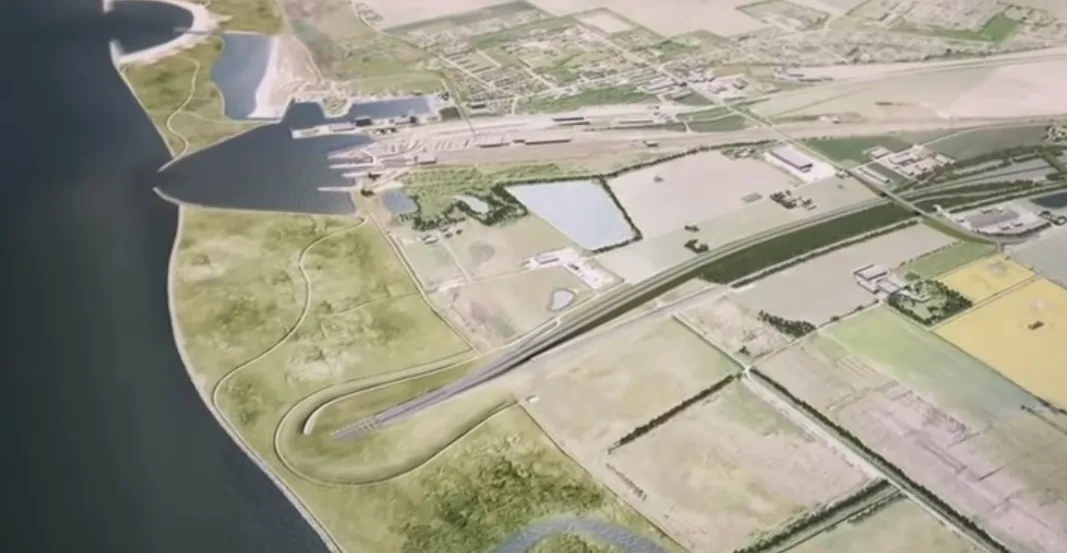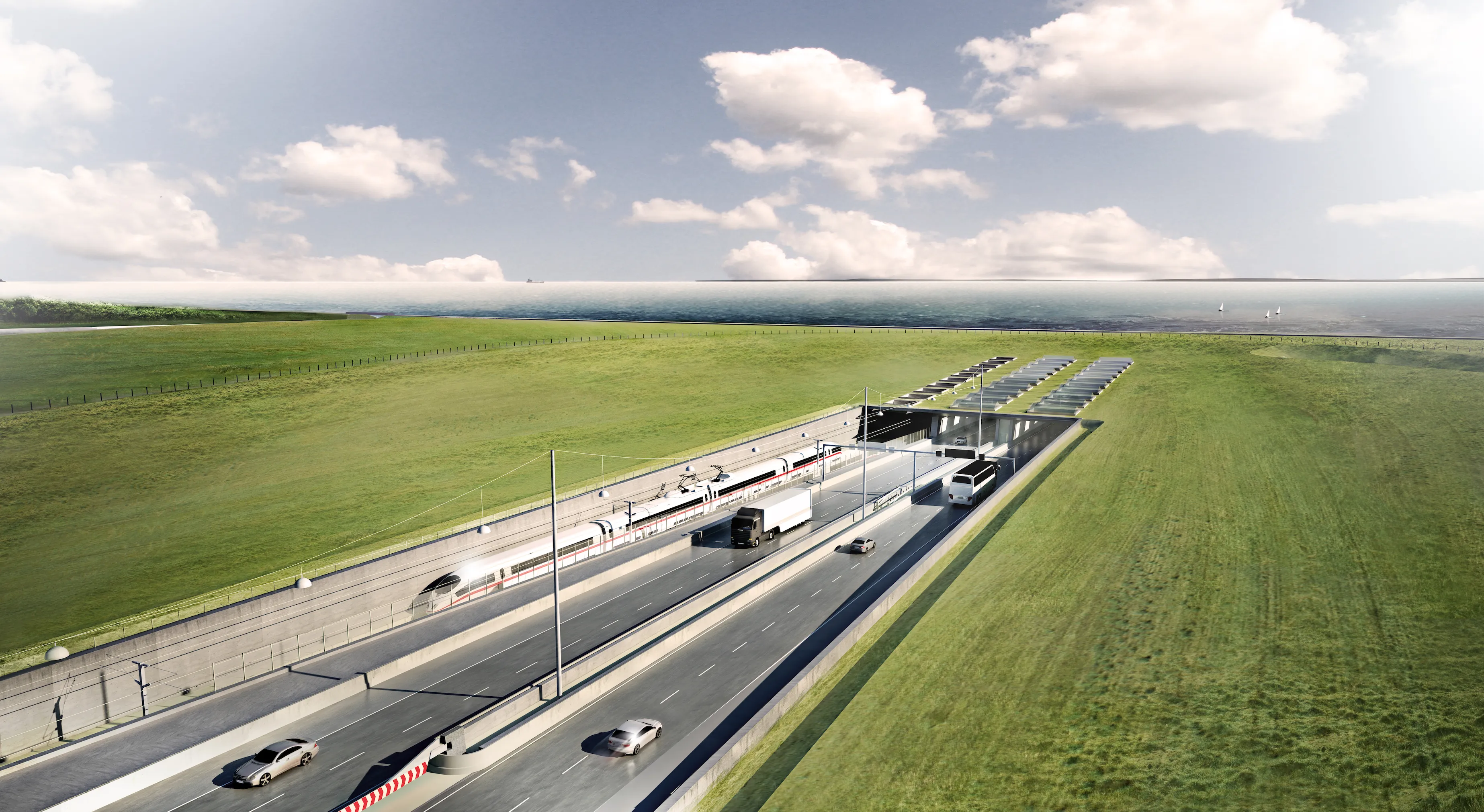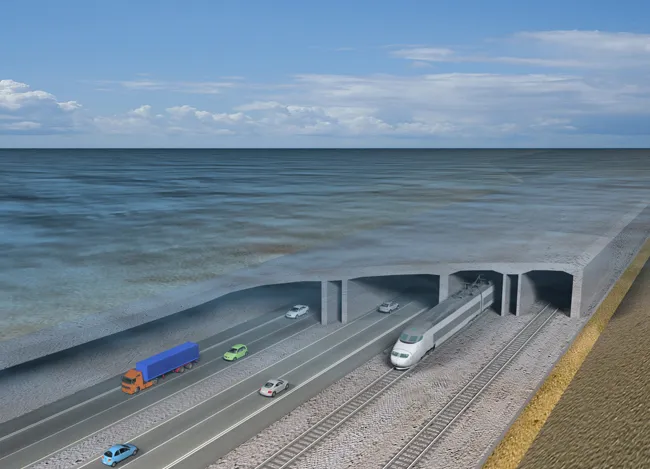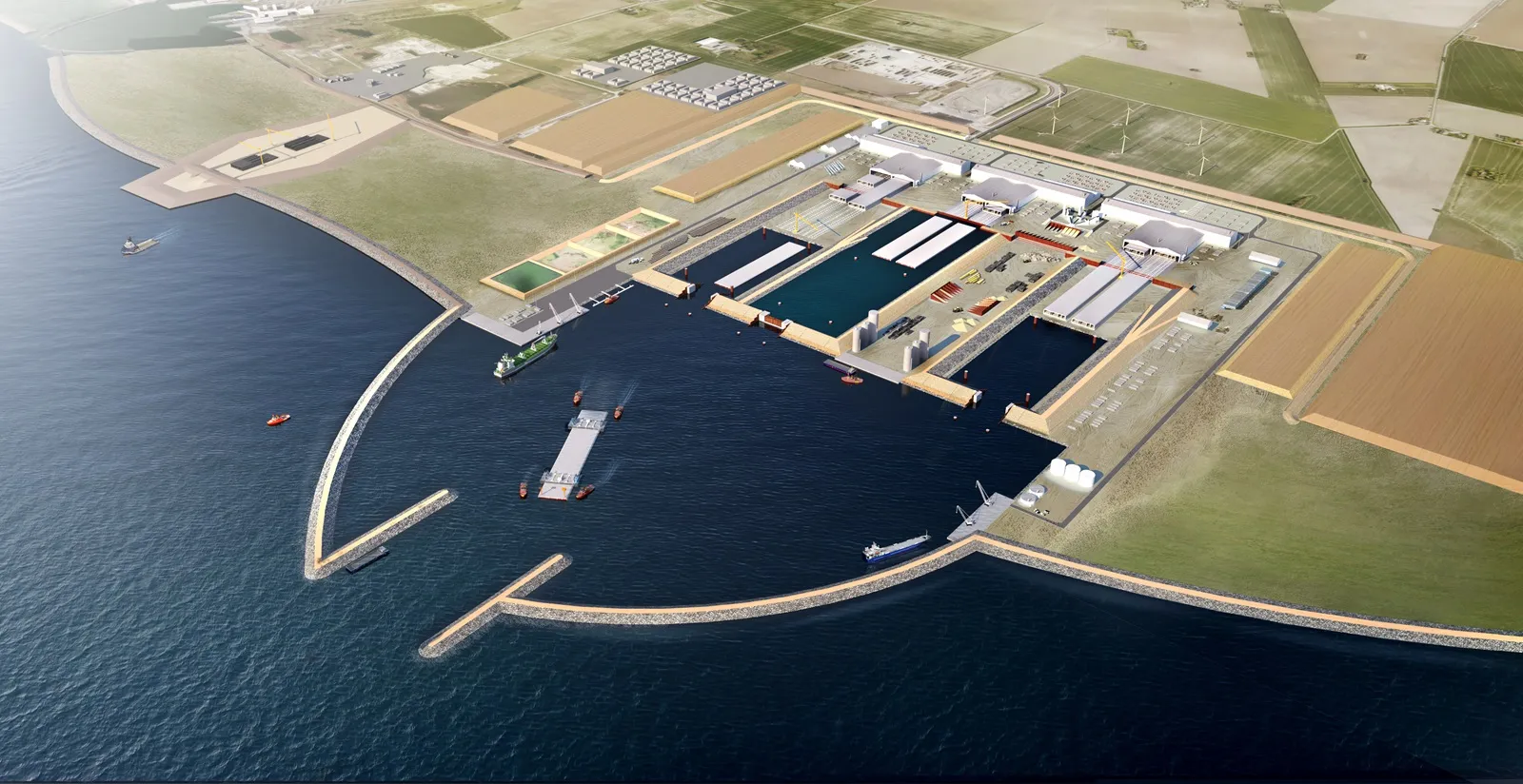
A German court will soon open proceedings in seven lawsuits against the planned rail and road link between the German island of Fehmarn and Denmark.
A four-lane motorway and double-track electric railway tunnel will run under the Fehmahrnbelt strait and the Danish government is shouldering the estimated €7.4 billion (US$8.54 billion) construction cost. The cases have been brought by environmental organisations, a farmer, communal authorities and two ferry operators whose services the project likely make redundant.
The ambitious project has run into repeated financial and environmental criticism since it was agreed several years ago by the two national governments to get the project underway. It will allow trains to cross the strait in just seven minutes and take cars ten minutes respectively. Currently, a ferry takes about an hour to make the crossing.
The Fehmarnbelt link will be built as an immersed tunnel. Hollow 73,000-tonne concrete elements, cast on land, will be barged out to sea and lowered into place along a 60m-wide, 16m-deep trench in the seabed.
In July, German and Danish media reported that around 30 supporters and activists of the Beltretter protest group held a gathering standing in the Baltic Sea at the Grüner Brink nature reserve near the Puttgarden ferry pier. They held a banner that read ‘Protect the Baltic Sea. Stop tunneling’ and voiced concern over possible damage to the environment and tourism in the Bay of Lübeck.
A Rambøll-Arup-TEC consultancy joint venture is engaged in a client consultancy services contract with Femern. The joint venture has also worked on other landmark infrastructure projects, including the Øresund Tunnel in Denmark, the City Tunnel in Malmö, Sweden, the Medway Tunnel in England, as well as underground rail systems in Amsterdam and Copenhagen.
COWI is carrying out the detailed design of the tunnel (north tunnel section, south tunnel section, and ramps & portals). Meanwhile, SWECO is handling the design for the dredging and reclamation work.









